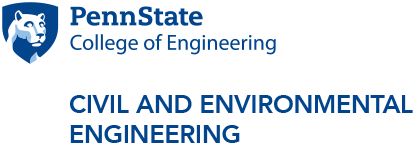Faculty Mentoring
The primary goal of the CEE mentoring program is to assist untenured faculty in building successful careers in our department, while also supporting progress through subsequent career stages. The department has established a mentoring committee to develop, guide, and update the mentoring program. The organized components of our mentoring program include:
- Mentoring teams
- Mentoring network maps
- A Canvas Pride
- Workshops
- Department head support
In addition, the assistant professors are encouraged to have independent self-organized social gatherings, such as monthly lunches, to foster mutual peer mentoring relationships.
Mentoring Teams
The mentoring teams may provide overall support and coaching, make contacts and suggestions for completing the mentoring map, review draft dossiers and annual self-reports, and fill other roles identified on the mentoring map as per their strengths and experience.
- All tenured and tenure-line faculty participate, except for special circumstances (sabbatical).
- Each team consists of four faculty members, chosen to support the needs of the most junior faculty member on the team (the mentee). The remaining team members include senior assistant (6th year), associate, and full professors. Each team includes at least one full professor and at least one faculty member in a similar technical area.
- Teams will be adjusted each academic year to reflect promotions, feedback, new faculty, requests, and other factors that arise.
- Mentoring teams may meet as a group to get acquainted if desired for the newer faculty members, but that is not required. Individual meetings may be more focused and productive and will be easier to schedule.
- Minimum meeting requirement: Each of the senior members of the mentoring team are responsible for initiating and scheduling a first meeting with the mentee during the fall semester, preferably in September or October (together or separately). The first-listed senior member of the mentoring team should meet again with the mentee during the spring semester.
- Additional meetings or interactions should generally be initiated by the mentee, so as to meet their needs, help resolve any problems, and answer their questions, without overburdening their schedules.
- The mentoring committee will check in with each mentee mid-year to be sure they are being supported by a responsive team.
Mentoring Network Maps
- Each assistant professor is asked to begin completing a mentoring network map (template provided). The map is a tool to help build a supportive professional network over time; it is not a reporting requirement. (Others may find documenting their own mentoring networks to be a useful exercise.)
- The mentoring teams and department head are available to help identify individuals and resources to fill needed gaps in the mentoring maps.
- Every cell does not have to be filled; our needs vary.
Canvas Pride
- A Canvas pride (group) has been set up as a collaborative repository for documents, recommended resources, shared dossiers, typical schedules and deadlines, and other materials.
- The mentoring committee has started to populate the Canvas pride, but others are encouraged to share their ideas and materials.
Workshops
- The mentoring committee will schedule at least one workshop each semester.
- Some of these workshops will be targeted specifically towards assistant professors, while others may be focused for associate professors or to a broader faculty audience.
- The first workshop for assistant professors will typically be held in September.
Department Head
The department head also serves an important role in faculty development. The department head will:
- Explain the department policies regarding the Promotion and Tenure process early in the first semester of the faculty appointment, and again in the spring semester of each subsequent year until tenure.
- Indicate the general expectations for tenure and promotion with regard to teaching, research and service.
- Work with the faculty member and the areas to make sure that teaching and service loads meet the needs of the dossier, but are not overburdening considering obligations inside and outside the department.
- Help identify and build relationships for the faculty member’s mentoring network.
- Consider the mentoring, collaboration and visibility needs of assistant professors when inviting department speakers, panelists, and other visitors.



